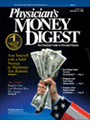Solve Common Wallet Woes with Ingenuity
A physician drops their wallet outsidethe hospital. The walletcontains their whole life—theircredit cards, driver's license, cash, andATM, Social Security, and insurancecards. Luckily, an honest person finds thewallet and returns it.
The doctor should celebrate. A thiefcould have lifted their identity, lootedtheir checking account, and racked upthousands of dollars in purchases beforethe wallet was missed. It's easy to do. Allyou need is a license, Social Security card,and credit card.
This simple fact holds true: Lose yourwallet and you risk enormous problemsnow and months from now. Safety andsecurity experts (ie, law enforcement,credit card companies, and club cardissuers) have warned for years that thisconvenience of modern life, no biggerthan a deck of cards, becomes aPandora's Box if you don't take precautions.To prevent a thief from drainingyour checking account or abscondingwith your life's history, consider adheringto the following tips from fraud andsecurity experts:
•Think small. Carry one or two creditcards for the things you really need, suchas car rentals, airplane tickets, hotelrooms, and dinners. Credit counselors recommendcarrying a card that is universallyaccepted (eg, American Express, Visa, orMasterCard). The second card should be aretail card that offers shopping servicesyou like and desire. It might be the no hasslereturn policy, discounts, or otherperks that attract you to this card.
•Keep it in your head. Carry a debitor ATM card and memorize the PINs;don't keep these numbers on a piece ofpaper in your wallet. There are two kindsof cards: online (issued by banks) andoffline (debit cards bearing theMasterCard or Visa logo). Online cardslet you move money instantly from youraccount to, say, a retailer. Offline cardsare like credit cards; they require a creditcheck, but they give you a bit of afloat. Online cards limit daily withdrawals,so you might not take a big hitif a thief gets your card. But offline cardaccounts can be looted dry. Therefore,report offline card loss immediately sothe company won't hold you liable forfraudulent purchases.
•Know when to hold them. If youabsolutely must carry a Social Securitycard, keep it out of your wallet.However, it's best to leave it home andmemorize your number. Your SocialSecurity number is a critical buildingblock to a fraudulent identity. If you loseyour card, call 800-772-1213 and requesta replacement card. Theft of check cashing,video store, and library cards canprove costly as well. So carry them onlywhen you need them, experts say, andreport their loss as soon as possible. Masstransit cards are like cash; they should bekept in a safe place with your cash andtravelers'checks. Health insurance andauto insurance cards can be altered forillegal use. You'll want to keep themhandy, however, so both industries recommendputting them in safe places.
•Maintain proper wallet/pocketbooketiquette. Security professionalsrecommend that men carry their walletsin pants pockets (not in their back pocket)or coat breast pockets. Womenshould carry pocketbooks close to theirbodies, with the strap across their shoulder;when seated, they should alwayskeep their bag on their lap.
Remember:
•Beware of the pickpockets. Thestranger on the train who bumps intoyou could be skilled in lifting wallets. Sodon't let anyone divert your attentionfrom your valuables. Hang onto a purseand briefcase if someone says youdropped something, and above all,watch the person's hands and not theireyes if you think something is fishy.Carry cash and credit cardsseparately, and only take what you need.When traveling, leave travel documents,jewelry, and other valuables in the hotelsafe when you go out.
